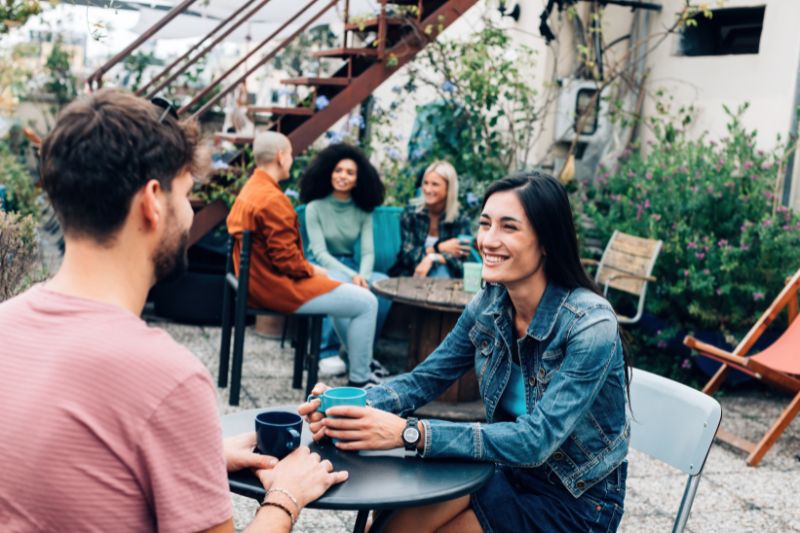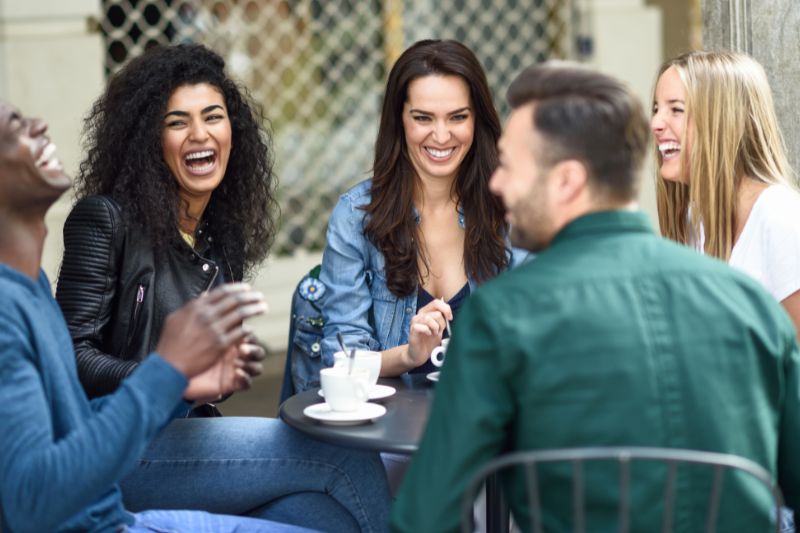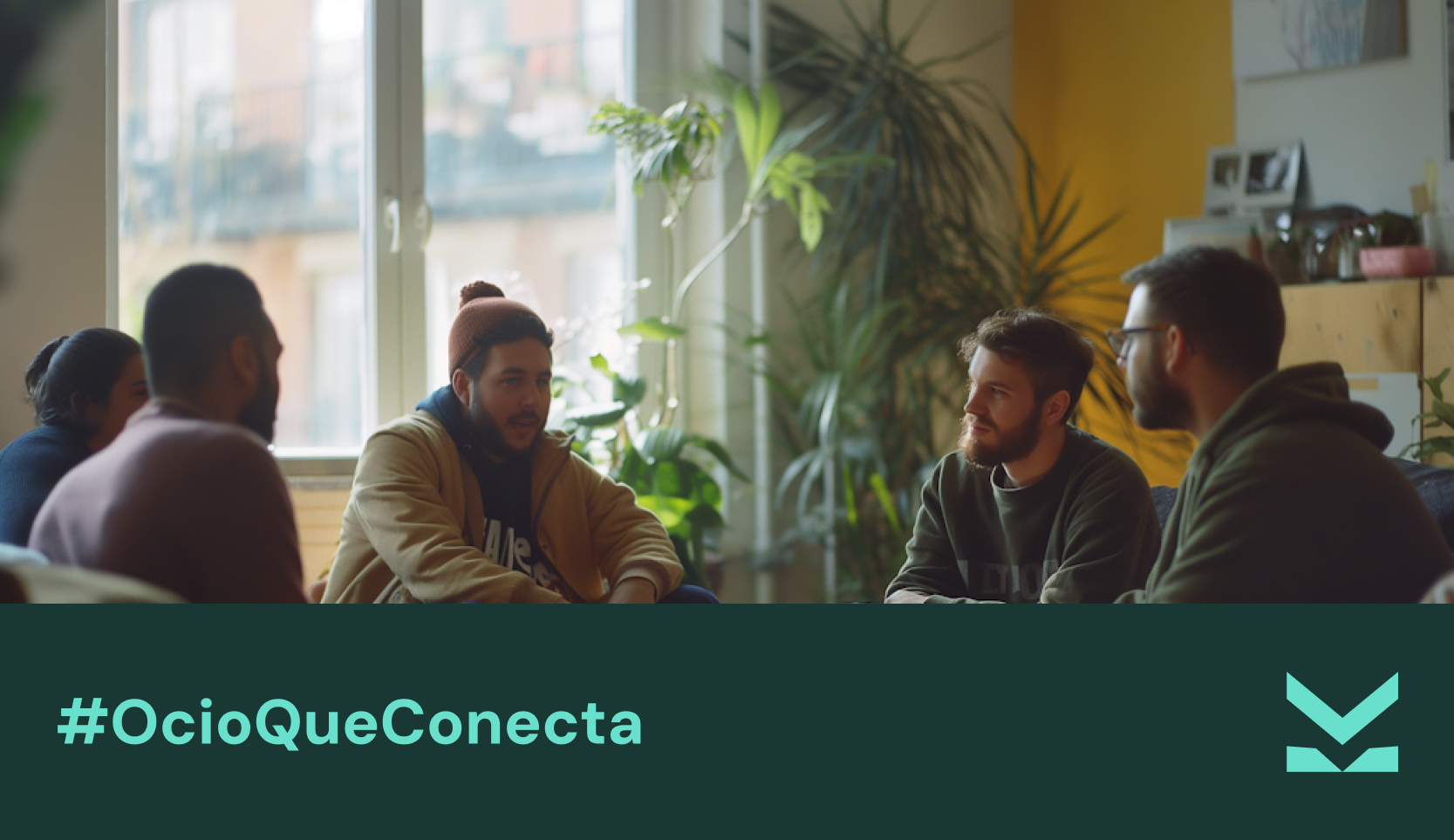When we migrate we carry suitcases, documents and souvenirs, but we also carry something invisible and powerful: our Venezuelan words.
In any case european cityBetween offices, universities and cafés, these expressions escape us. Because no matter how long we have been away, we will always have our own way of speaking, which sneaks into the conversation and brings us back, all of a sudden, to our homeland.
We say "corduroy"at a meeting in Madrid and they look at us funny. We let out a "what a racket". at Lisbon and people smile without understanding.
At Milanwe explain that we are "burda de cansados and no one understands what we are talking about. And yet, for us, those words are a emotional lifeline, they make us feel accompanied, they connect us with others Venezuelans and remind us that, even though we are far away, we are still who we are.
Our jargon crosses borders without asking permission. It is an accent that travels with us and sometimes causes confusion, but always connects us with our people.
Because beyond the paperwork, the queues at the immigration office or the challenges of adapting, speaking the way we speak as foreigners is a Venezuelans is a way of resisting oblivion.
And therein lies our courage, that of those of us who decided to emigrate, to rebuild our lives far from home and, in many cases, that of those who, with hard work and effort we send remittances as a silent form of love for those who stayed behind.
The power of speaking as Venezuelans do

The Spanish from Venezuela has a special rhythm, full of humour, diminutives and creative twists.
We say "poquiticoinstead of "un poco" and "ahorita" with that temporal flexibility that can mean "un poco" and "ahorita" with that temporal flexibility that can mean "un poco" and "ahorita".right now" o "at some point"..
Our "is on its wayis never as immediate as it sounds, and a "no" is never as immediate as it sounds, and a "no" is never as immediate as it sounds.I'm going out"can be from "I'm putting on my shoes" to "I'm still in the shower".
These nuances, which are so natural for us, become curiosities for others. Spanish speakers.
At Spainsomeone may look at us confused if we say "...".that guy is a wanker"because they don't understand that we are talking about someone gossipy or nosy. At Italya "what a nuisance"is understandable, but a "what a crab"sounds exotic.
At EuropeThese words become a secret code. Within one metre in Berlinwe heard someone say "what a crab"and we immediately know that there is a compatriot. In a cafeteria from Parisa girl greets with "epa, chamo"and we automatically feel that we are not so far away from home. Talking like this is like wearing a invisible flag.
Venezuelan words that cross borders

Among so many expressions, there are some that always travel with us and that we use, even if we know they will cause confusion:
- Pana: friend, trusted companion.
- Burdatoo much, too much.
- Arrechosomething surprising or someone annoying, depending on the context.
- Bochinche: disorder, noise or party.
- Chévere: synonym for nice, good, great.
- Chamo/Chama: boy or girl.
- Guayoyoyocoffee: light coffee, typical of the mornings in Venezuela.
- Finosomething that is liked or well done.
- Crabannoyance, annoyance.
- Take the pigeon: expression to motivate someone to make an effort.
- Macundalesobjects or belongings, usually many things together.
- Cuaimapossessive or jealous woman.
- Turkeysomeone or something that brings bad luck.
- Pull ball: to flatter someone excessively with interest.
- Zaperocogreat uproar or confusion.
- ArepaMore than food, it is a cultural symbol that names our identity.
- Teatbaby bottle.
- Cotufapopcorn.
- Tostón: crushed fried banana, also used as a quick reference in conversations.
- Rumbear: partying.
- Setting foot on the ground: dancing.
- Carajito: toddler.
- Guachafita: relaxation or disorder with a humorous tone.
- Pelabolasomeone with no money.
Each of these words venezolanas is more than a colloquial term: it is an affective memory. To say "guayoyo" in Lisbon is to feel the smell of coffee of the grandmother in Caracas.
Call "chama"to a friend in Barcelona is to bring a little piece of our adolescence to the European life. And shout "échale pichón"in the midst of a job challenge in Berlin is to remind us that we have Venezuelan courage in our blood.
Curiosities of Venezuelan speech

One of the funniest peculiarities is our tendency to use diminutives. We say "quickie", "now", "poquitico" and even "chiquitico". For a German or a FrenchIt is curious that something can be so small that it needs more than one diminutive.
Another curiosity is how we use the same terms for opposite situations. A "arrechocan be someone annoying or an astonishing achievement: "I'm not a "I'm not".That concert was a blast". A "what a ball"can be indignation ("qué bolas lo que pasó") or positive surprise. This semantic flexibility makes our Spanish dynamic and very expressive.
We are also experts at inventing words. One example is "cold".we use to describe someone cold-sensitivealthough the RAE hardly accepts it in informal contexts. Or our habit of using verbs as nouns: "I threw a guayoyo" o "I'm going to take a foot".
Identity and resistance through words
Continue to speak as we speak in Venezuela is not nostalgia: it is resistance. It is to refuse to let distance erase our way of feeling.
In the middle of a procedure at the foreigners' office, say "what a pain in the ass this paperwork is"and hear that another Venezuelan responds with a laugh, reminding us that we are in good company.
These Venezuelan sayingsthat gesture, as simple as speaking in our own language. jargonis part of the fortress that defines us.
Because we are brave not only for leaving our homeland, but also for keeping it alive in every word, in every effort, in every consignment that crosses the ocean to support those we love.
Humour, resilience and community

Another important aspect is humour. The Venezuelan words are a spark in the midst of difficulty. In the long wait for regular papers, a compatriot says "...they are a spark in the midst of difficulty.this really is a crab"and we all laughed.
That laughter doesn't solve the problem, but it makes it more bearable.
Shared humour is community. And that community is also built with words. Saying "What a racket this party is"unites more than any formal explanation. Sharing a "great to see you"After months of work, he returns us the familiarity.
At European cities where the Venezuelans are concentrated, as Madrid, Barcelona, Lisbon or MilanThese words are often heard.
They work as a password, if you say "burda"the other knows that you are part of the tribe. If you hear a "epa"You know there is a brother nearby.
The emotional value of our jargon
Every time we say "epa, chamo"in a European streetsomething ignites inside us. It is a nod to the childhooda beautiful embracea reminder that we have not lost our roots. The Venezuelan words not only communicate: support, embrace, reconcile.
They are humour in the midst of tiredness, relief in the midst of loneliness and complicity in the midst of distance. They help us to cope with the migratory mourningThey remind us of who we are and make us feel proud to carry an accent that does not disappear, but expands.
Never stop using them

The Venezuelan words do not stay in Caracas nor in MaracaiboThey travel with us, they settle down in the streets of Madrid, Lisbon or Berlinand become small flags of identity.
Although they may sometimes cause confusion, they also arouse curiosity and build cultural bridges.
Use them far from home is more than a custom: it is a act of love, memory and resistance.
Because as long as we continue to call ourselves "panas"complaining about a "crabs"or celebrating a "scramble"We will continue to be part of Venezuela.
We are the brave people who emigrated, those of us who struggle day by day to integrate without losing what is ours, and those who, with words, with work and even with remittances, keep the flame of our country alive in every corner of the world. Europe.
Every word we say is proof that we are still standing tall, with our heads held high and our Creole spark intact.
Our accent is not erased, it is multiplied; our slang is not lost, it becomes a flag. Because speaking like Venezuelans at Europe is not just custom: it is pride, it is joy and it is strength.
At Curiara we know: every "corduroy"each "cool". and every "échale pichón". is a reminder that we carry Venezuela in the voice and in the heart.
Let the world hear it: we are a voice that crosses borders, an identity that does not give up, and a community that always finds reasons to celebrate.
